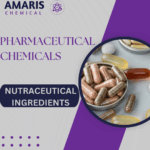The Science Behind Soy Lecithin: Understanding Its Role in Nutrition and Cooking
Soy lecithin is a widely used food additive derived from soybeans, prized for its emulsifying properties and nutritional benefits. But what exactly is soy lecithin, and how does it contribute to both health and culinary applications? Let’s dive into the science behind this versatile ingredient.
What is Soy Lecithin?
Soy lecithin is a natural phospholipid extracted from soybean oil during processing. It consists of a mixture of fatty acids, phosphatidylcholine, and phosphatidylethanolamine—key components that help stabilize and blend ingredients that do not naturally mix, such as oil and water.
Nutritional Benefits of Soy Lecithin
Soy lecithin is valued for more than just its role as an emulsifier; it also offers various health benefits:
- Supports Brain Health: It contains phosphatidylcholine, a precursor to acetylcholine, which plays a critical role in memory and cognitive function.
- Promotes Heart Health: Lecithin may help lower LDL (bad) cholesterol levels while increasing HDL (good) cholesterol, improving cardiovascular function.
- Aids in Digestion: It can help with fat metabolism, making it easier for the body to break down and absorb essential nutrients.
- May Reduce Inflammation: Some studies suggest lecithin has anti-inflammatory properties that could benefit conditions like arthritis.
Culinary Uses of Soy Lecithin
Soy lecithin is an essential ingredient in many food products due to its emulsifying properties. Some of its common applications include:
- Baking: Used to create smoother dough and improve moisture retention in bread and pastries.
- Chocolate and Confectionery: Prevents cocoa butter from separating, ensuring a smooth texture.
- Dairy Alternatives: Helps blend plant-based milk and creamers for a consistent texture.
- Sauces and Dressings: Enhances stability in mayonnaise, salad dressings, and creamy sauces.
Is Soy Lecithin Safe?
Soy lecithin is considered safe for most people, with regulatory agencies like the FDA and EFSA approving its use in food. However, individuals with soy allergies should exercise caution, though the risk of an allergic reaction is low due to the refining process.
Conclusion
Soy lecithin is a powerful, multifunctional ingredient with both nutritional and practical benefits. From improving heart and brain health to enhancing the texture of various foods, its applications make it a valuable addition to both nutrition and culinary science.


 Emollients
Emollients Humectants
Humectants UV Filters
UV Filters Surfactants (cosmetic)
Surfactants (cosmetic) Preservatives (cosmetic)
Preservatives (cosmetic) Fragrances and Essential Oils
Fragrances and Essential Oils Antioxidants (cosmetics)
Antioxidants (cosmetics)
 Solvents (lab)
Solvents (lab) Chromatography Chemicals
Chromatography Chemicals Microbiology and Cell Culture Reagents
Microbiology and Cell Culture Reagents Biochemical Reagents
Biochemical Reagents Inorganic and Organic Standards
Inorganic and Organic Standards Spectroscopy Reagents
Spectroscopy Reagents Molecular Biology Reagents
Molecular Biology Reagents
 Precious Metal Extraction Agents
Precious Metal Extraction Agents
 Plasticizers
Plasticizers Polymerization Initiators
Polymerization Initiators Stabilizers
Stabilizers Monomers
Monomers Fillers and Reinforcements
Fillers and Reinforcements Antioxidants (plastics)
Antioxidants (plastics) Colorants (plastic pigments,Dyes)
Colorants (plastic pigments,Dyes)
 Fertilizers
Fertilizers Plant Growth Regulators
Plant Growth Regulators Soil Conditioners
Soil Conditioners Animal Feed Additives
Animal Feed Additives Biostimulants
Biostimulants
 Dough Conditioners
Dough Conditioners Flour Treatments
Flour Treatments Fat Replacers
Fat Replacers Preservatives (baking)
Preservatives (baking)
 Surfactants (cleaning)
Surfactants (cleaning) Builders
Builders Bleaching Agents
Bleaching Agents Enzymes
Enzymes Solvents (cleaning)
Solvents (cleaning) Fragrances
Fragrances Disinfectant
Disinfectant Metal cleaning
Metal cleaning
 Binders/Resins
Binders/Resins Pigments
Pigments Solvents (paint)
Solvents (paint) Additives
Additives Driers
Driers Anti-Corrosion Agents
Anti-Corrosion Agents Specialty Coatings
Specialty Coatings Functional Coatings
Functional Coatings Application-Specific Coatings
Application-Specific Coatings
 Sealants and Adhesives
Sealants and Adhesives
 Biodegradable Surfactants
Biodegradable Surfactants Bio-based Solvents
Bio-based Solvents Renewable Polymers
Renewable Polymers Carbon Capture Chemicals
Carbon Capture Chemicals Wastewater Treatment Chemicals
Wastewater Treatment Chemicals
 Preservatives (food)
Preservatives (food) Flavor Enhancers
Flavor Enhancers Acidulants
Acidulants Sweeteners
Sweeteners Emulsifiers
Emulsifiers Antioxidants (food)
Antioxidants (food) Colorants (food)
Colorants (food) Nutrient Supplements
Nutrient Supplements Nutraceutical Ingredients
Nutraceutical Ingredients
 Fresh Herbs
Fresh Herbs Whole Spices
Whole Spices Ground Spices
Ground Spices Spice Blends
Spice Blends
 Surfactants(oil)
Surfactants(oil)
 Antibiotics
Antibiotics Active Pharmaceutical Ingredients
Active Pharmaceutical Ingredients Excipients
Excipients Vaccine Adjuvants
Vaccine Adjuvants Nutraceutical Ingredients
Nutraceutical Ingredients Solvents (pharmaceutical)
Solvents (pharmaceutical)
 Automotive chemicals
Automotive chemicals Pyrotechnic Chemicals
Pyrotechnic Chemicals


 Vulcanizing Agents
Vulcanizing Agents Accelerators & Retarders
Accelerators & Retarders Antidegradants
Antidegradants Reinforcing Agents
Reinforcing Agents Plasticizers & Softeners
Plasticizers & Softeners Fillers & Extenders
Fillers & Extenders Blowing Agents
Blowing Agents Adhesion Promoters
Adhesion Promoters












